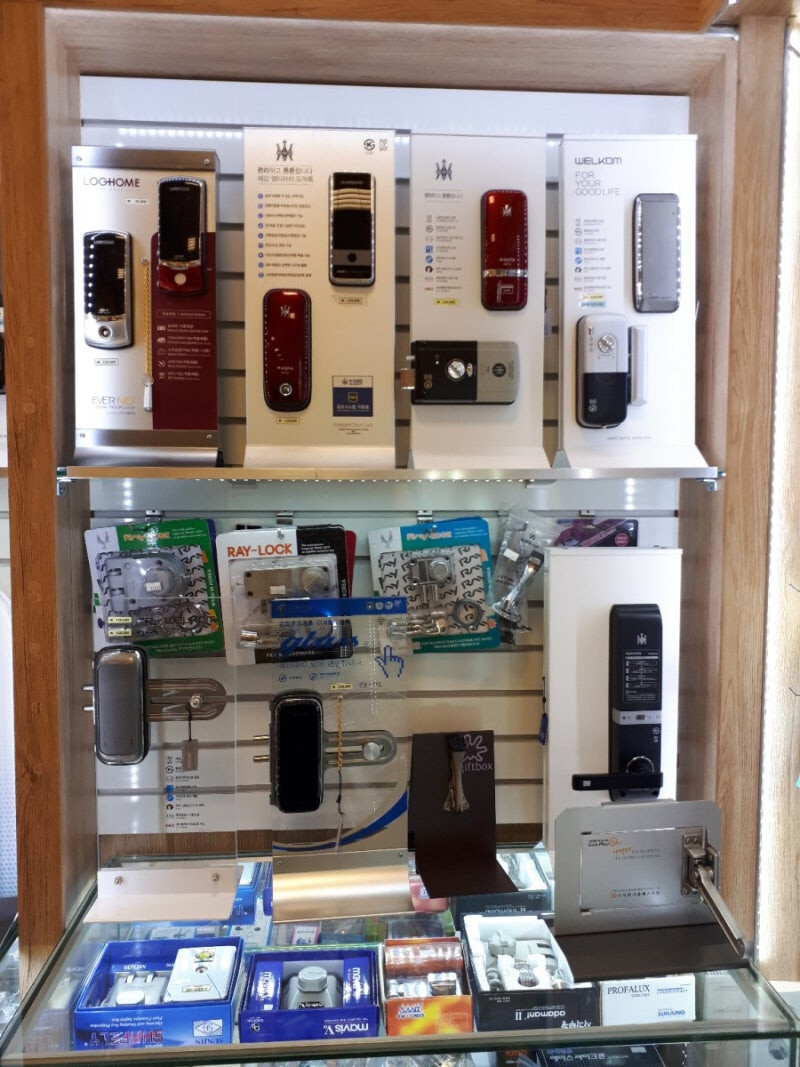
The smart door lock market in Vietnam is projected to experience robust growth by 2025, driven by increasing consumer demand for enhanced security and convenience in both residential and commercial spaces.
Rising Popularity of Electronic Locks
Electronic door locks are gaining significant traction in Vietnam due to their superior security and convenience compared to traditional mechanical locks. Consumers are increasingly prioritizing safety and security products, and they prefer devices that seamlessly integrate with smartphones and other smart home systems.
Mr. Nguyen Anh Quan, a resident of Hoang Mai district, shared his experience with electronic locks, stating, "The electronic lock allows me to easily connect to my phone through the app, enabling remote control. This provides me with constant monitoring of my home and real-time updates on who enters and exits."
Market Diversification and Competition
The Vietnamese smart door lock market has witnessed a diversification of product types, designs, and price points. The market is expanding its reach to a broader customer base, no longer limited to high-income individuals or construction contractors.
According to a representative from Ssehome Smart Devices Co., Ltd., the market is primarily supplied by imports from China and Korea, alongside some domestically produced products. South Korea boasts a high adoption rate of smart door locks in apartments, with 70% penetration, characterized by simple designs and stable quality.
China dominates the Vietnamese market due to its competitive pricing, aesthetic appeal, and advanced technology. Chinese brands have introduced innovative technologies and eye-catching designs, intensifying competition.
Product prices typically range from 10 to 30 million VND, making them an attractive investment for tech-savvy and luxury-seeking consumers.
Challenges and Opportunities
Despite the promising growth prospects, the market faces challenges such as fierce competition from imported products and foreign companies. Major brands like Samsung, Yale, and local players are vying for market share through competitive pricing and features.
However, domestic companies have demonstrated their ability to successfully compete and surpass foreign counterparts. Local manufacturers are continuously enhancing their products with features like fingerprint unlocking, facial recognition, and remote control via mobile apps, catering to consumer preferences.
Future Outlook
Experts predict that the smart door lock market in Vietnam will continue its upward trajectory by 2025, driven by the increasing demand for advanced security solutions in high-end real estate projects and smart apartments.
The growing integration of technology in homes and businesses will further solidify the role of smart door locks as an integral component of the smart home ecosystem, enhancing user experience and convenience.
However, the market must address challenges such as security vulnerabilities arising from AI-powered malware and the high initial investment costs associated with these products.
Master Pham Ngoc Trung emphasized the rising trend of smart home devices and the Internet of Things (IoT) in Vietnam, highlighting the importance of smart door locks in providing convenience and security.
Domestic manufacturers are urged to improve pricing, enhance product reliability, and address consumer skepticism regarding product origins and awareness to overcome barriers to market adoption.
[Copyright (c) Global Economic Times. All Rights Reserved.]





























